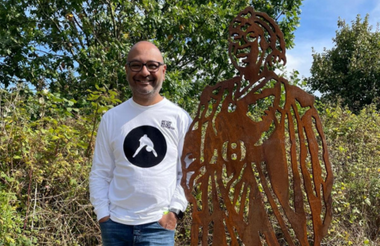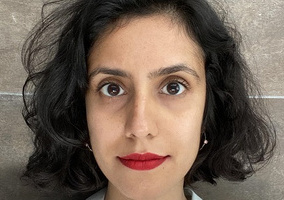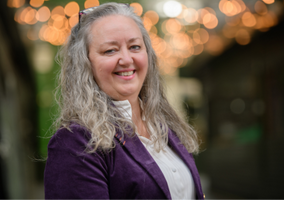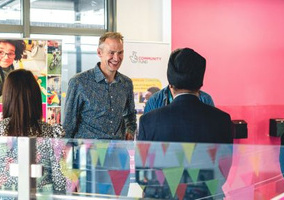Just over a year ago, Kaushik Mistry made a life choice. After working in the corporate sector for 35 years, he joined the charity sector as chief executive of the Anthony Walker Foundation.
At the time, Mistry knew that leaving the private world to work in charity would mean taking a “huge pay cut” and adapting to a new lifestyle – a decision he was willing to make.
“I was financially stable, not dependent on that salary, but also Covid-19 was a big time of reflection,” he says.
“I’m a person of colour. I was involved in campaigning all my life and most of that has been based around colour and poverty.
“That was the kind of charity sector job I was interested in and when Covid-19 happened, when I was able to reflect and certain things aligned in my personal life and finances, that allowed me to take that leap.”
‘Outward racism was rife’
Mistry’s parents immigrated to Britain from East Africa in the late 1960s, with no money, and worked in a factory.
His family lived in the “west end” of Ashton-Under-Lyne, which Mistry describes as “a white working-class mill town” in Tameside, Greater Manchester.
He says that part of Manchester was home to lots of Indians who had come from Tanzania to settle there and worked in the same factories which “were desperate for people”.
“That’s how the community was built. Eventually, there were a few thousand people in Ashton-Under-Lyne who were from that community. We built a temple, community centre and that sort of stuff. The community was built there, but it was a white working-class community with factories all around us.”
Mistry grew up in the 1970s when “outward racism was rife” and the norm was “very different”, he says.
“To have outwardly racist language in comedy programmes was an acceptable thing. That translated into hurt and hate in the real world. On TV, they were using the N-word and P-word blatantly in a comedy context and then in the playground that became a harmful tool for pain.
“I was brought up with that and all the racist stereotypes, norms and behaviours you’d expect someone of my age to have. Name-calling was accepted as normal, watching racist TV programmes was acceptable and fine and everybody thought it was funny.”
Mistry says many young Black and brown people who grew up in Manchester in the 1970s found life “difficult and challenging and had to navigate a way through that”.
For him, it was through education, ensuring he did well at school so that he could find a good job and get himself out of poverty.
‘Unconscious bias’
As his career progressed, Mistry says he struggled to get a job at a charity, partly because of his private sector background and also his skin colour.
“It’s something I wanted to do for a long time but found it incredibly difficult to get in the charity sector as a person of colour outside of a Black-led organisation.”
Before joining the Anthony Walker Foundation, he applied for numerous jobs for which he thought he had suitable transferable skills, but struggled to get interviews.
“I couldn’t even get to the starting gate because they said: ‘You’re not from the charity sector at senior level. We don’t want to talk to you.’
“I’m talking about big, mainstream charities with huge equality, diversity and inclusion (EDI) policies. They don’t know how to implement them and that’s why there’s still a huge shortage of senior leaders of colour in the charity sector.”
Mistry wrote to more than 200 charities over two years, either to apply for jobs or ask them about their EDI policies and how they were implementing them.
He asked them questions such as: “How are you implementing what you say you want to deliver in terms of EDI; how do you make your leadership more representative of the people you represent; and how do you ensure that your leadership has Black and brown faces?”
“Funnily enough, a significant number of charities said: ‘You don’t have the skills and experience because you’ve not worked in the charity sector at senior level but you have some interesting things in the background,” he says.
“So, why don’t you become a trustee?’ The thing about being a trustee is that you don’t get paid.”
Mistry thinks there is a lot of “unconscious bias” in the sector, particularly when it comes to the recruitment process.
He recalls a job interview for a position at a large London-based refugee charity where he was interviewed by four white people.
“When I met the attorney general [Richard Hermer] recently, I said to him: ‘You need to have Black and brown people in the room because we have a different lens.
“If the charity sector is mainly white and if the people who are interviewing are mainly white, where’s the lens?’”
300% rise in demand
The Anthony Walker Foundation was founded in 2006 by Gee Walker following the racially motivated murder of her son Anthony in Huyton, Merseyside.
It supports more than 1,600 people per year through its dedicated hate crime victim support service to help those who have experienced racism and faith-based hate in Merseyside.
Mistry’s “deep understanding” of anti-racism, as he puts it, made him a suitable candidate to take the helm at the foundation after former CEO John Denny stepped down to become a trustee.
“I had massive empathy with the family for what they went through,” he says.
“Anthony’s story is incredibly moving. It breaks every single barrier they don’t want you to break. He was bright and intelligent and wanted to be a lawyer. He was a committed Christian. He was liked and had a lovely personality. He had a close-knit family.
“When you hear his story and see and hear Gee Walker talk, it’s impactful and you go away moved. That’s life-changing work for many people and we do that. We work with dozens of people every single day and affect their lives in a positive way.”
‘We punch above our weight’
Mistry says the last few months have been “horrific” for small charities like the Anthony Walker Foundation, which often “punch well above their weight with increasingly limited funds”.
He mentions the riots that took place in the UK over the summer and resulted in a substantial rise in demand for his charity, but no extra funding.
“We don’t have any extra money. Within a few weeks of the riots, we had a 300% increase in referrals of people through all our various streams looking for support and nobody thought for a minute: ‘How do we fund that other than us?’”
His charity’s hate crime victim support service is funded by the Ministry of Justice through the Police Crime Commissioner for Merseyside, receiving £23,500 from this source last year, less than half the amount it received in 2022.
Although the funding helps the charity do “essential” work, Mistry says that “it’s nowhere near enough”.
“For us, to go out to get more money, for example, by procurement, it costs money to tender and we don’t have money to tender either.”
He asks whose responsibility it is to fund a victim of race a crime: “Is it a statutory responsibility? If it is, that’s where the money should be coming from. We’re doing essential work and find it incredibly difficult to reach out for further funding from elsewhere.”
‘We must be a beacon of hope’
Next year will mark the 20th anniversary of Walker’s murder and Mistry says that the Anthony Walker Foundation must continue to be “a beacon of hope for people”.
“We want to have a large programme of activity that’s national, delivering a message of hope that if we carry on doing the work we’re doing in a bigger way, we can bring about palpable change.
“Twenty years is a hell of a long time and this summer’s riots have shown to people that that underlying surface of racist tension is there. There’s an opportunity to deal with it head-on, with a government that seems to want to deal with it head-on.”
He says the government and politicians must engage with charities that work with communities as they have an “essential” relationship with them.
“If you want to know what people think, need and want to do, then you need to engage with people like us.
“You don’t need to do your own surveys or reinvent the wheel. You need to establish a good channel of communication and line between our sector, what we deliver, the people who work in it and the people we represent.
“We can talk eloquently about the victims of hate crime every year. Just come and talk to us and we’ll tell you what the biggest issues are.”
Related articles












